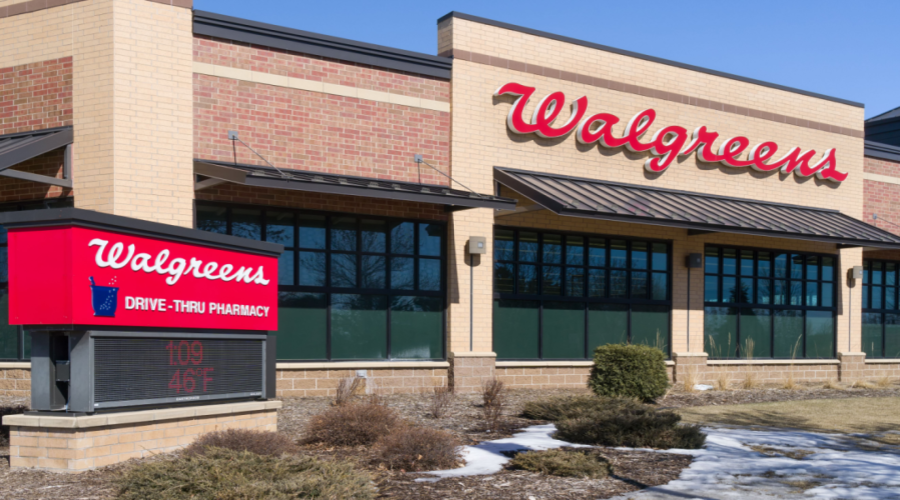Specialty pharmacy is an emerging opportunity for independent community pharmacies to advance their businesses, while also helping patients.
“From a financial aspect, specialty pharmacy is a great avenue for independent pharmacy,” said Jake Galdo, Pharm.D., BCPS, CGP, clinical assistant professor at Samford University in Birmingham, Ala. “It’s also a great opportunity for independent pharmacies because we know our patients.”
The demand for specialty pharmacy is growing, and so is the chance for independent pharmacies to become involved. “It’s an incredibly booming industry,” Galdo said.
Independents already provide patients with quality service and high-touch patient care, which expensive specialty pharmacy demands. Galdo said this level of patient care makes independents well-suited to dispense specialty medications.
“We know patients’ family history, we know their social life, and what’s going on,” he said. “We’re able to help them in ways mail order may not be able to.”
Mutually beneficial
Patients who rely on specialty medication stand to benefit from specialty services offered by their local pharmacy.
These patients often require more time for counseling and additional education on how to administer or store a complex medication. Independent community pharmacies provide the personal approach to care that these patients need.
“When we have specialty medical conditions, which tend to be devastating medical conditions like oncology and rheumatoid arthritis, patients need that extra little bit of touch,” he said. “They need that extra little bit of time from us to help them.”
Independent community pharmacists also tend to have a closer relationship with their patients, which, Galdo said, can help them when dispensing specialty medications.
“We know them by name, we interact with them and we know the entire course of their medical history,” Galdo said. This familiarity is the foundation to a strong pharmacist-patient relationship, he said.
These relationships can improve adherence, which is key to ensuring high-quality results.
Business benefits
For independent pharmacies, specialty medications offer a high dollar margin, even if the profit margins are smaller.
Galdo explained that pharmacies typically have a profit margin of about 20 to 25 percent for most drugs they dispense. While this percentage seems reasonable, Galdo said that less expensive generic drugs with 25 percent margin might only amount to $2 or $3 for the pharmacy.
“That’s not enough to cover the cost of dispensing, which on average is about $11,” Galdo said.
Specialty drugs have a large dollar margin, which can help a pharmacy’s bottom line, Galdo said.
“With specialty pharmacy, your margin is only 5 percent, but if the cost of the medication is $10,000, your 5 percent margin is $500,” Galdo said. “That covers the cost of dispensing, and then a whole lot.”
Future of specialty
Specialty pharmacy is poised to grow, Galdo said. And, the biggest factor spurring specialty’s growth is money. “Money and the fact that we live longer,” he said.
As the population ages, people are more likely to develop a more complex condition, such as cancer, that requires specialty drugs. More drugs will be developed to treat those conditions, and Galdo said developing these new drugs is driving the industry.
“We have to invest a large amount of money to find a very special therapeutic option for a very specific medical condition,” he said. “That large upfront research cost is driving the backend profit of the business.”
Despite these forces driving growth, Galdo cautioned that this niche is not without challenges for independent community pharmacies.
Independents face limited distribution, where pharmacy benefits managers (PBMs) and payers designate a few select pharmacies in the nation to carry a certain drug.
“So a community pharmacy in rural Alabama or rural Georgia might not be able to access that drug,” Galdo said. “We can only ensure access when we work together to try and overcome it.”
A knowledge gap is another challenge some independents face.
“Specialty medication deals with medical conditions that are just now being discovered,” Galdo said. “We’re just now finding ways to treat them.”
If a pharmacist doesn’t know what the special condition is, Galdo said it’s difficult for him to know how to treat it.
“Anyone could do specialty pharmacy, but not everyone should do it,” he said. “If you don’t know what HIV is, should you be dispensing drugs to a patient who has HIV?”
To overcome this knowledge gap, Galdo recommends pursuing continuing education. “It’s about being engaged and being willing to jump in and learn something new,” he said.
Specialty success
In order to be effective, Galdo said independents must focus on how they implement specialty pharmacy into their practice.
“The best thing that an independent pharmacy can do to be successful in specialty pharmacy is to be deliberate and analytical within workflow,” Galdo said.
Properly incorporating specialty pharmacy into your workflow can make you more efficient, and less likely to make a dispensing error, which, Galdo said, can be devastating in specialty pharmacy.
While you never want to make a dispensing error, Galdo noted that a mix up in specialty pharmacy can be particularly damaging for the patient and the pharmacy.
“If I misfill a Lisinopril®, it’s not as terrible from a patient outcomes perspective and it’s not really that bad from a financial outcomes perspective, but if I misfill Sovaldi®, I’m out $30,000, and I could really harm the patient,” he said.
“If done well, if done properly, we can have a great impact on our patients’ lives,” he said. “We want to get into specialty because there’s a need for our patients to get the best care possible.”
About the expert
Jake Galdo, Pharm.D., BCPS, CGP, clinical assistant professor at Samford University in Birmingham, Ala., is leading research projects addressing medication and system-use evaluation in community pharmacy, quality improvement analytics, patient-centered care, and developing different revenue streams for community practice.
Galdo will go into more detail on how specialty pharmacy can benefit your patients and your pharmacy during a continuing education session at the Next! 2016 PBA Health Conference & Business Seminar, June 24-26, 2016 in Kansas City, Mo. “We’re going to cast that vision of ‘What is specialty pharmacy?’ and ‘How can I, a community pharmacist, be able to care for my patient,’” Galdo said.
Learn more and register to attend at pbahealthconference.com.
What is specialty pharmacy?
When defining specialty pharmacy, Jake Galdo, Pharm.D., BCPS, CGP, clinical assistant professor at Samford University in Birmingham, Ala., keeps it simple.
“The succinct answer is a high cost and some- thing else,” he said.
Galdo said the Centers for Medicare & Medicaid Services (CMS) consider drugs that cost about $600 per month to be high-cost drugs, and private insurers usually set the bar around $1,200 per month.
The “something else” means an extra service, storage requirement, special administration, such as injection, or any extra step or education that a medication needs to be properly dispensed.
“A good example is insulin because it’s high cost, it requires refrigeration and you have to inject it,” Galdo said.
By the numbers
$400 billion – Projected spending for specialty drugs by 2020
51 – Percent of specialty drug spending used for cancer, rheumatoid arthritis and multiple sclerosis treatment
9.1 – Percent of national health spending projected to be used for specialty drugs by 2020
3 to 4 – Number out of 100 people who use at least one specialty drug
A Member-Owned Company Serving Independent Pharmacies
PBA Health is dedicated to helping independent pharmacies reach their full potential on the buy-side of their business. Founded and run by pharmacists, PBA Health serves independent pharmacies with group purchasing services, wholesaler contract negotiations, proprietary purchasing tools, and more.
An HDA member, PBA Health operates its own NABP-accredited warehouse with more than 6,000 SKUs, including brands, generics, narcotics CII-CV, cold-storage products, and over-the-counter (OTC) products — offering the lowest prices in the secondary market.












